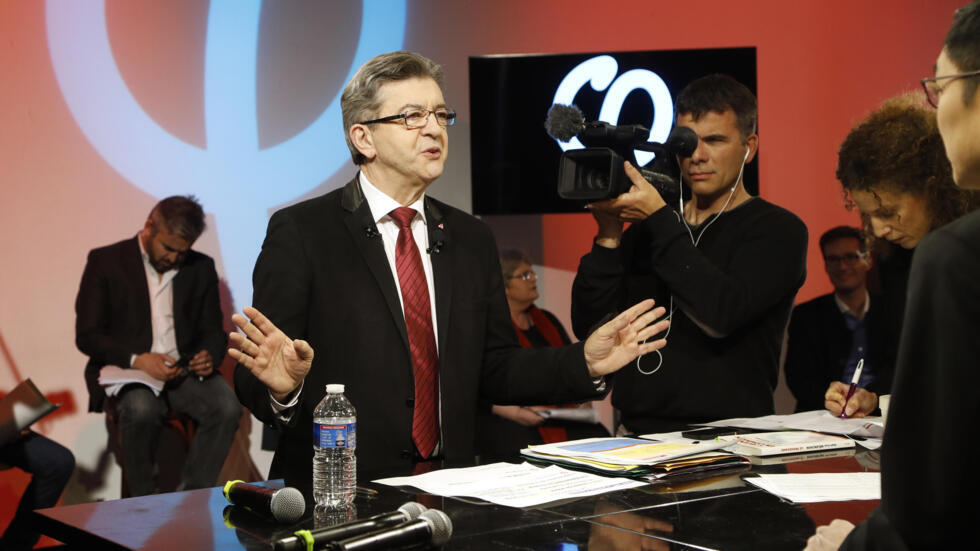Boost public spending, tax the rich - French left-winger's election pledges
Left-winger Jean-Luc Mélenchon promised a 273-billion-euro recovery package for the French economy and a 90 percent top tax rate if he is elected president in a five-hour broadcast on his economic programme on Sunday. Meanwhile, prospects of him doing a deal with Socialist candidate Benoît Hamon seemed to diminish over the weekend.
Issued on: Modified:

"We're always asked 'How much does it cost?' We're going to tell you," Mélenchon said in a YouTube broadcast.
And he proceeded to do so for five hours.
Drawn up with a group of experts, the plan proposes a Keynesian boost to the economy through 273 billion euros of public spending over five years, which they estimate will lead to a "virtuous circle" of growth.
To read our coverage of the French presidential election campaign click here
A Mélenchon-led government would seek a loan as quickly as possible so as to pump 100 billion euros into the economy.
Its main targets would be:
50 billion euros on "environmental emergencies", including 25 billion in renewable energy;
33 billion euros to fight poverty;
32 billion euros on pension reform, with retirement at 60;
24 billion euros on education, culture and youth;
22 billion euros on pay rises in the public sector;
18 billion euros to build 200,000 public housing units a year;
17 billion euros on youth.
With the boost to consumer spending and investment, particularly in renewables, Mélenchon predicts growth of two percent in 2018 and the creation of 3.5 million jobs, bringing unemployment down from today's 10 percent to six percent.
So how would he pay for it?
Both by the knock-on effect of growth and an estimated 190-billion-euro increase in tax income from:
Inflation, which would reach four percent, increasing government income;
A 90 percent tax rate on incomes over 400,000 euros;
33 billion euros from fighting tax evasion;
38 billion euros from scrapping tax breaks, although company taxes would be cut by 25 percent.
Mélenchon is a committed opponent of the European Union's budget restrictions but claims that, although "it is not its essential objective", the growth would reduce the public deficit to 2.5 percent of GDP by the end of his five-year term.
A projected rise to 4.8 percent in 2018 would be likely to induce apoplexy in Brussels, however.
His team also stresses that the plan prioritises reducing France's ecological footprint over increasing consumer spending.
Hamon, Mélenchon unlikely to reach deal
Prospects of either Mélenchon or Benoît Hamon standing down in the other's favour seemed to grow dimmer over the weekend.
The two talked by phone on Friday but gave no details of the conversation.
Mélenchon has placed a number of conditions before serious negotiations start, one of them being that several Socialist right-wingers not stand in parliamentary elections.
On Saturday he slammed the idea of a eurozone parliament, which Hamon has asked economist Thomas Piketty to examine as a "technocratic invention".
"I won't chase after Jean-Luc Mélenchon," Hamon commented on a weekend visit to Portugal.
Socialist Party national secretary Jean-Christophe Cambadélis on Monday said the hard-left candidate was "embarrassed" by the victory of a left-winger in the Socialist primary and that it would probably "the voters who decide"
Daily newsletterReceive essential international news every morning
Subscribe